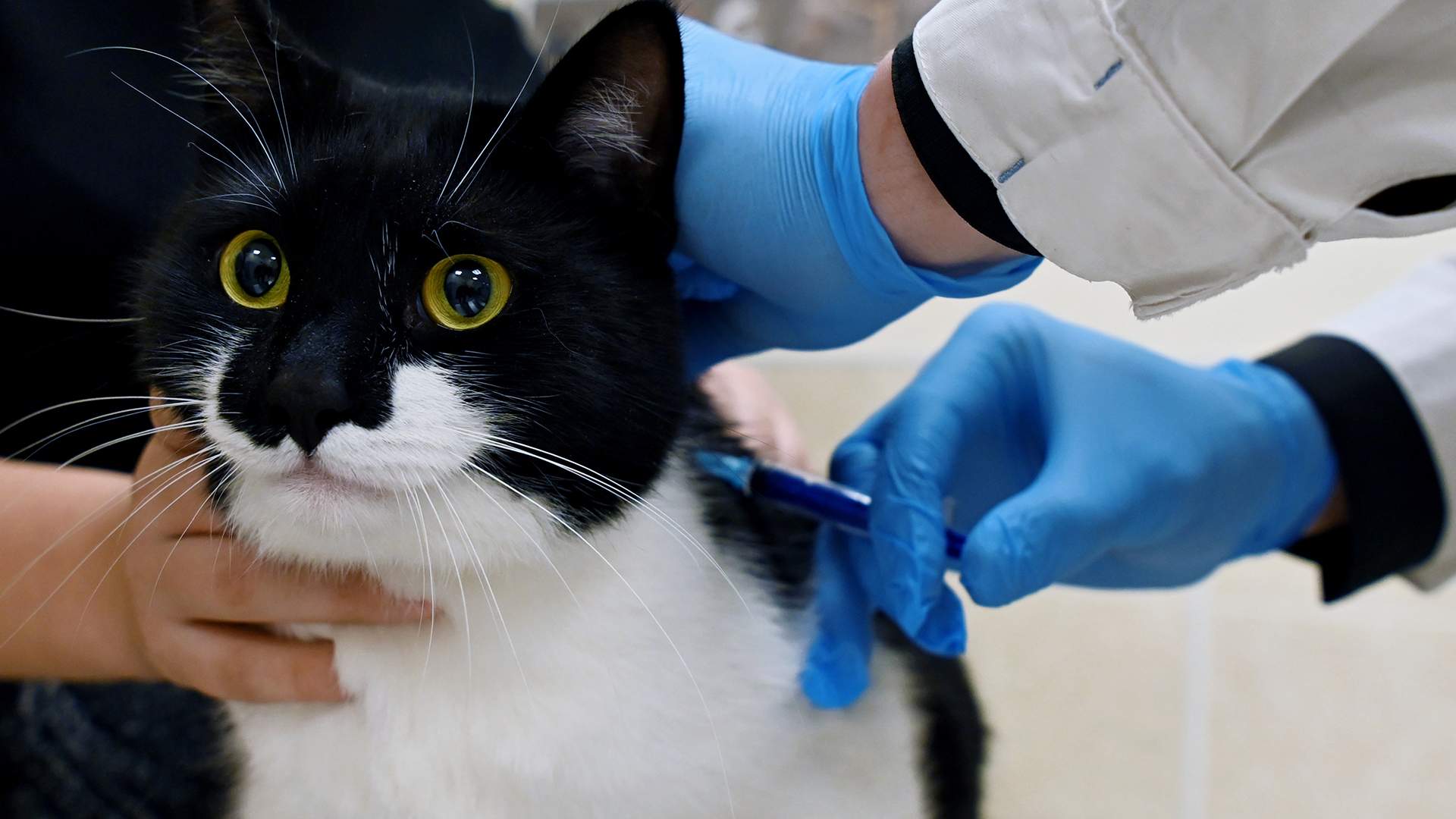- Статьи
- Society
- Take a grip: the share of Russian veterinary vaccines in the market has grown record-high
Take a grip: the share of Russian veterinary vaccines in the market has grown record-high

The share of domestic veterinary vaccines in the Russian market has reached a record volume — in 2024 it exceeded 67%, the press service of the Rosselkhoznadzor told Izvestia. Over the year, the growth was about 15%. There is no shortage of vaccines for the most common and economically significant infectious diseases of animals in the country, the ministry noted. But experts interviewed by Izvestia noted that there is, for example, a shortage of preventive drugs for cattle. How animal vaccines are substituted for imports is in the Izvestia article.
How many Russian veterinary vaccines were produced
In 2024, 47.7 billion doses of veterinary vaccines were delivered to hospitals and pharmacies, which is almost 124% more than in 2023. This was reported to Izvestia by the press service of the Rosselkhoznadzor.
The share of domestic vaccines in the total volume was 67.5%. This is the highest figure achieved in recent years. Last year, it was 53.5%, and in 2022 it will be about 40%.
"The withdrawal of foreign manufacturers of veterinary drugs from the Russian market in 2022 forced Russian manufacturers to respond promptly to the current situation," the Rosselkhoznadzor noted. "The situation has forced us to mobilize and use all available capacities of domestic industries and attract investments for their further expansion."
The federal service recalled that since September 1, 2023, 430 permits have been issued for the introduction of vaccines to the market, of which 301 are for Russian—made drugs.
The share of domestic manufacturers in the veterinary drugs market is consistently growing, said Nikolay Bespalov, Director of Development at the RNC analytical company. The market for animal medicines is also growing.
So, according to him, in 2022, in monetary terms, Russian pharmaceutical companies occupied 40.2% of the market, in 2023 - 42.8%, in 2024 — 47.9%. But the growth in packages is far from significant: 59.8% in 2022, 60.7% in 2023, 66.5% in 2024.
Which vaccines are missing
So far, active import substitution has made it possible to cover the need for vaccines only for dogs, cats and other pets, Oleg Baydarov, owner of the Zeleny Kot Veterinary Hospital, told Izvestia.
"But there are not enough Russian drugs for vaccinating cattle, pigs, horses, and chickens,— he stressed.
Veterinarian Mikhail Shelyakov agreed with him. The expert added that previously the share of imported animal vaccines reached 80%, but now it is about a third.
—There are vaccines available for dogs and cats, but there are difficulties with access to vaccines for larger animals," Mikhail Shelyakov confirmed.
According to him, rabies vaccines are the most available now.
— This is due to the fact that the middle part of Russia is unfavorable for this disease. Therefore, more attention is being paid to it," he explained.
According to the Federal Service for Veterinary and Phytosanitary Surveillance, five organizations produce animal vaccines from domestic manufacturers — Vetbiochim, the All-Russian Scientific Research Institute for Animal Protection, the Kursk Biofactory company Biok, the Biocenter and the Shchelkovsky Biocombinat.
Of these, only three companies produce vaccines for large animals, Izvestia found out after analyzing the manufacturers' websites. These are the All-Russian Scientific Research Institute for Animal Protection, the Kursk Biofactory company Biok and the Shchelkovsky Bio-processing plant. Vetbiochim produces vaccines for cats and dogs. Biocenter is for minks and dogs.
Izvestia sent requests to the company asking them to clarify the production volumes of vaccines, as well as to comment on whether an increase in production is planned.
Vetbiochemist reported that the range of vaccines produced by the company includes 39 names.
"The company's vaccine production and sales volumes are growing. We note an increase in the production and sale of veterinary vaccines in physical terms for the first quarter of 2025 compared to the same period in 2024 by 43.3%, or 15 million doses of drugs," they added.
Currently, there is no shortage of vaccines for the most common and economically significant infectious diseases in animals, the Rosselkhoznadzor emphasized.
"Only Russian immunobiological preparations are used in Russia for particularly dangerous diseases, including common diseases for humans and animals, as well as major economically significant animal diseases," the ministry stressed.
They recalled that since March 14, 2022, the government decree "On the specifics of licensing activities in the Russian Federation" has been in effect. It provides for accelerated registration of medicines for veterinary use — previously the deadline was 160 working days, now it is 60 days. The list of documents that the applicant provides for state registration has also been reduced. This mechanism made it possible to bring 205 new domestically produced medicines for animals to the market in 2024.
Переведено сервисом «Яндекс Переводчик»






